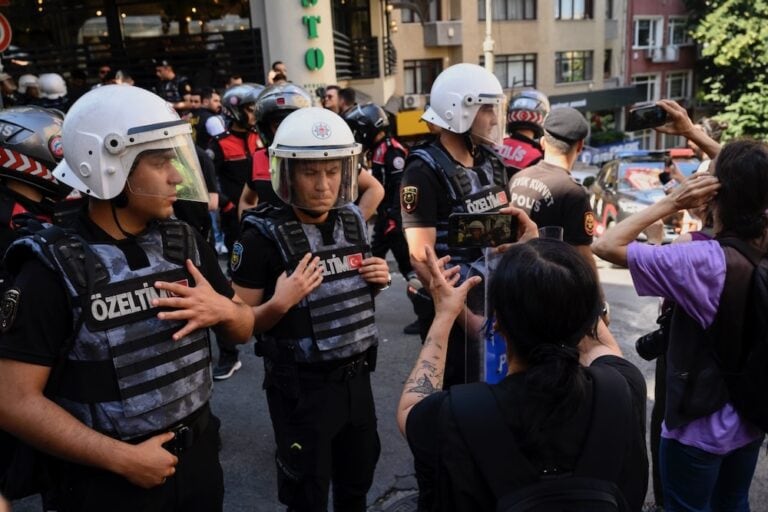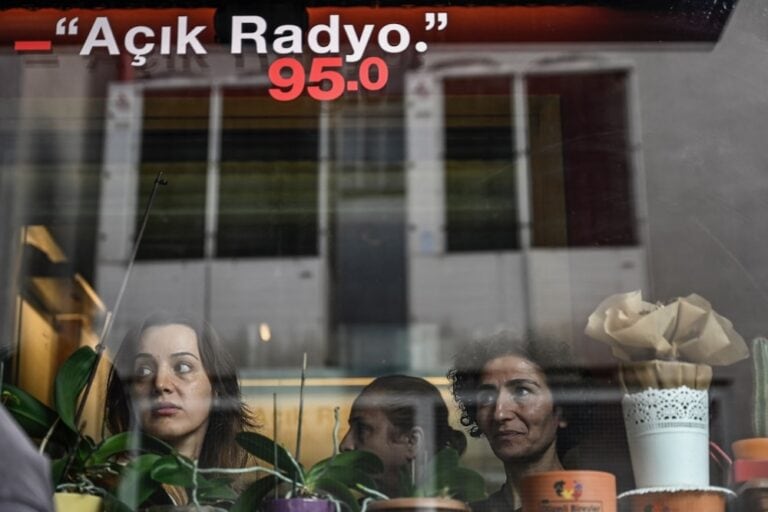(BIANET/IFEX) – Despite pressure from the EU and human rights activists internationally and domestically, the prosecution of journalists, writers and activists under the infamous Article 301 continues. Before the Progress Report of the European Union, EU authorities had called for the abolition of Article 301, and Turkish government officials had signaled that changes were on […]
(BIANET/IFEX) – Despite pressure from the EU and human rights activists internationally and domestically, the prosecution of journalists, writers and activists under the infamous Article 301 continues.
Before the Progress Report of the European Union, EU authorities had called for the abolition of Article 301, and Turkish government officials had signaled that changes were on the way. However, Article 301 continues to be used to prosecute journalists, writers and human rights activists.
For instance, the prosecution has appealed against the acquittal of Ferhat Bayindir, the head of the Human Rights Association (IHD) branch in Batman, in south-east Turkey. Bayindir took on the case of Hasin Is, who was killed in front of the Batman Municipality building in 2005. Bayindir himself was put on trial after a press statement he made on 16 June 2005. He was accused of “insulting the police force”. While the Batman Heavy Penal court acquitted Bayindir on 4 October, prosecutor Zeki Yalcin took the case to the Supreme Court of Appeals.
Speaking at a hearing, Bayindir had said: “The press statement needs to be evaluated in terms of freedom of expression and the right for defense. There was no criminal intention. I was defending my client’s rights and the law.”
In another 301 case, publisher Ragip Zarakolu is still on trial for publishing the Turkish translations of Prof. Dora Sakayan’s “An Armenian Doctor in Turkey”, the memoirs of Dr. Garabet Haceryan in Izmir, and George Jerjian’s “The Truth Will Set Us Free”. The translator of Sakayan’s book, Atilla Tuygan, is also on trial.
The prosecution is demanding up to seven-and-a-half years’ imprisonment for Zarakolu for “insulting and ridiculing the State and the Republic” and “insulting the memory of Atatürk”. For Tuygan the prosecution is demanding up to six years’ imprisonment for “degrading Turkishness” and “insulting and ridiculing the army”. The case will continue on 5 December.
A third case under Article 301 is that against Emin Karaca, writer for the journal “Yazin”. He criticised the army for executing student revolutionaries Deniz Gezmis, Yusuf Aslan and Hüseyin Inan. Karaca’s case, under Article 301/2, continued on 3 October and the next hearing is on 27 November.
Karaca has been on trial for five years. He was initially tried with Dogan Özgüden and Mehmet Emin Sert and was given a suspended prison sentence in September 2005. The sentence was then converted to a 900 YTL (approx. US$ 740) fine. The court decision was then overruled by the Supreme Court of Appeals because of a technicality. Sert was then acquitted and Özgüden’s file was separated from the case.
Kurdish singer Ferhat Tunc has also long been on trial. After writing an article entitled “A Revolutionary Leyla and a Song” in the “Yeniden Özgür” newspaper, published on 19 January 2004, he has been on trial for three years for “insulting and ridiculing the court.” In the article, Tunc criticised the court case in which Leyla Zana and other former Democratic Party (DEP) MPs were tried while in detention. The case against him will continue on 13 December.
Both Tunc and Mehmet Colak, the editor of the newspaper, who lives abroad, are on trial. The prosecution is demanding a prison sentence of three years.


